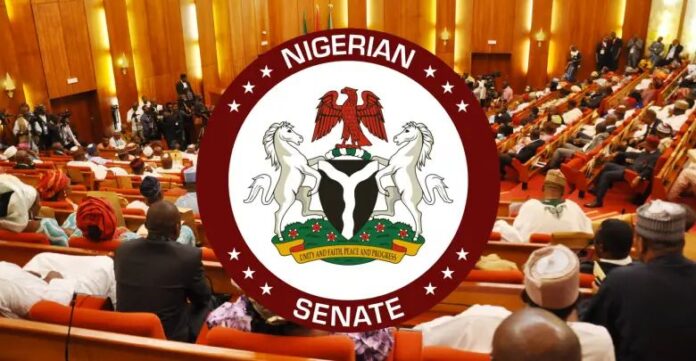The Nigerian Senate, on Thursday, May 9, passed a bill stipulating the death penalty for persons convicted of drug trafficking in the country. This new legislation amends the existing NDLEA Act, which currently has life imprisonment as the maximum sentence.
The amendment was done during second reading of the NDLEA Act (Amendment) Bill 2024 report by the Committees on Judiciary, Human Rights and Legal Matters, and Drugs and Narcotics. The joint committee was chaired by Senator Mohammed Monguno (APC-Borno North).
The committees were mandated to review the Act to update the list of substances considered dangerous drugs, enhance the effectiveness of the NDLEA’s operations, reassess penalties, and facilitate the establishment of laboratories.

However, the committee did not initially propose the death penalty but during the clause-by-clause reading of the Bill in plenary, Senator Ali Ndume (APC, Borno South) proposed upgrading punishment in Section 11 of the Act from life imprisonment to the death penalty.
Arguments For And Against
During the debate, lawmakers who opposed the amendment expressed concerns given the permanency of the death penalty and the possibility of wrongful convictions.
But those in support argued the threat of execution would serve as a stronger deterrence to drug traffickers than life imprisonment.
Deputy Senate President Barau Jibrin, presiding over the session, conducted a voice vote on the proposed amendment and ruled that the “Ayes” had it.
This was quickly objected to by Senator Adams Oshiomhole (APC, Edo North). He contested that the “Nays” should have had the voice vote, and argued that such weighty matters of life and death should not be rushed.
Barau overruled him, maintaining his objection was too late in the proceeding, and stood his ground.
Hitting the gavel, the amendment went into the third reading and was subsequently passed.
Awaiting Concurrence
The lower chamber, the House of Representatives earlier passed the bill but without the death penalty provision. The process now awaits concurrence from both chambers, and if adopted, will go for presidential assent to become law.
Please comment and share this article, & follow us on our social media handles.







